

Understanding Vaginal Atrophy (or Dry, Itchy Vagina)
Causes, concerns & Empowering Solutions for Women
Itchy Vagina (or Vaginal atrophy), also known as atrophic vaginitis or genitourinary syndrome of menopause (GSM), is a common yet often underdiagnosed condition affecting millions of women worldwide.
What is Vaginal Atrophy (or tchy Dry Painful Vaginal Disorder) ?
Itchy Vagina (or Vaginal atrophy) is the thinning, drying, and inflammation of the vaginal walls due to a decrease in estrogen levels. This condition primarily affects postmenopausal women but can also occur in women who have undergone certain medical treatments or surgeries that affect hormone levels.
What are the Symptoms of Vaginal Atrophy (or Itchy Dry Painful Vagina Disorder)?
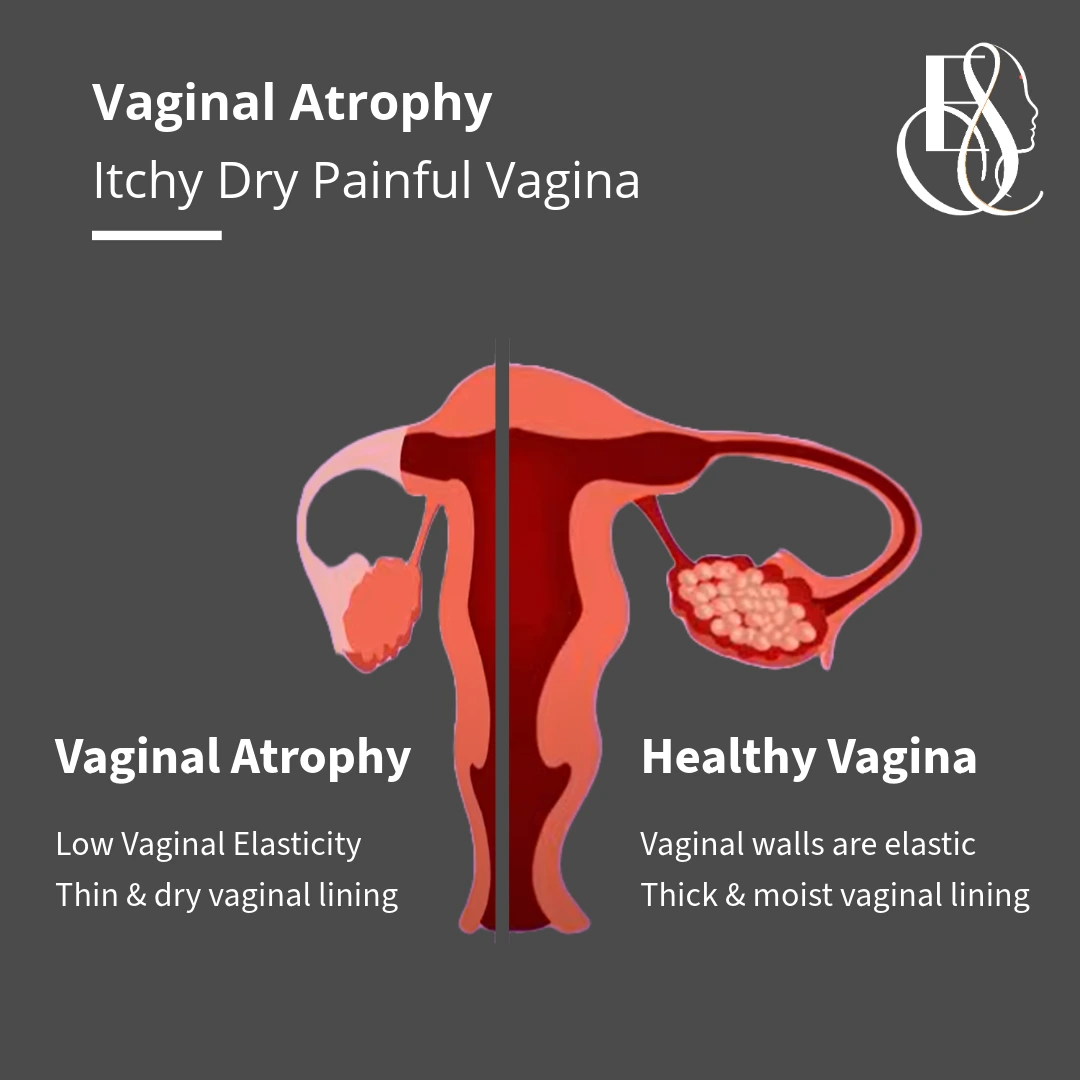
Recognizing the symptoms of vaginal atrophy is crucial for early diagnosis and treatment. Common symptoms include:
- Vaginal dryness
- Burning or itching in the vagina, or itching on the vulvar (external) regions
- Discomfort or pain during sexual intercourse (dyspareunia)
- Light bleeding during intercourse
- Recurrent urinary tract infections
- Urinary incontinence ( or leaking of urine involuntarily)
- Frequent urination, or painful urination, or burning sensation on urination
- Shortening and tightening of the vaginal canal
- Blood in urine
- Decreased vaginal lubrication during sexual activity
- Vaginal discharge which is unusual
What are the causes of Vaginal Atrophy (or Itchy Dry Painful Vagina Disorder)?
- Menopause: The most common cause of vaginal atrophy is the natural decline in estrogen production that occurs during menopause.
- Surgical menopause: Women who have undergone surgical removal of the ovaries (oophorectomy) may experience an abrupt drop in estrogen levels, leading to vaginal atrophy.
- Breast cancer treatments: Certain cancer treatments, such as chemotherapy or hormonal therapies, can affect estrogen production and lead to vaginal atrophy.
- Radiation therapy: Pelvic radiation therapy for various cancers can damage vaginal tissues and cause atrophy.
- Medications: Some medications, including certain antidepressants and antiestrogen drugs, can contribute to vaginal dryness and atrophy.
- Postpartum hormonal changes: The drop in estrogen levels after childbirth can sometimes lead to temporary vaginal atrophy.
Who are at risk of developing Vaginal Atrophy (or Dry itchy painful vagina Disorder) ?
While the primary risk factor for vaginal atrophy is the decline in estrogen levels associated with menopause, several other factors can increase a woman’s likelihood of developing this condition:
- Smoking: Tobacco use can affect estrogen levels and blood circulation, potentially exacerbating vaginal atrophy.
- Lack of sexual activity: Regular sexual activity helps maintain vaginal health by promoting blood flow to the area.
- Never having given birth vaginally: Women who have never had a vaginal delivery may be at higher risk for vaginal atrophy.
- Certain medical conditions: Autoimmune disorders, such as Sjögren’s syndrome, can affect vaginal health.
- Medications: Some medications, including certain antidepressants and allergy medications, can contribute to vaginal dryness.
- Lack of exercise: Regular physical activity helps maintain overall hormonal balance and vaginal health.
- High stress levels: Chronic stress can affect hormonal balance and contribute to vaginal atrophy.
What is the impact of Vaginal Atrophy (or Dry itchy painful vagina Disorder) on a woman’s wellbeing ?
Vaginal atrophy can have a significant impact on a woman’s physical, emotional, and sexual well-being. The condition can affect various aspects of life, including:
- Sexual function: Pain and discomfort during intercourse can lead to a decrease in sexual desire and satisfaction, potentially straining intimate relationships.
- Urinary health: The increased risk of urinary tract infections and incontinence can affect daily activities and quality of life.
- Emotional well-being: The symptoms of vaginal atrophy can lead to feelings of anxiety, depression, and lowered self-esteem.
- Overall physical comfort: Persistent vaginal dryness and irritation can cause discomfort in everyday activities.
- Relationship dynamics: The impact on sexual function and intimacy can affect relationships with partners.
- Quality of life: The combination of physical symptoms and emotional effects can significantly reduce overall quality of life.
How is Vaginal Atrophy (or Dry Itchy Painful Vagina Disorder) Diagnosed ?
If you experience symptoms of vaginal atrophy, it is important to consult with a healthcare provider. Ideally get yourself evaluated by a Specialized reconstructive and cosmetic gynaecologist, who will be able to determine the exact nature and cause of Vaginal Atrophy.
Since most symptoms of a true vaginal atrophy are similar to a vaginal infection, it may be often underdiagnosed. If you have chronic consistent and recurring problem of vaginal atrophy, it may time to meet a super specialised reconstructive and cosmetic gynaecologist. Diagnosis typically involves:
- A thorough medical history review
- A pelvic exam to check for signs of vaginal thinning and dryness
- Laboratory tests to rule out infections or other conditions
- Ultrasound
Treating vaginal atrophy is essential for several reasons:
- Improved quality of life: Effective treatment can alleviate discomfort and pain, improving overall well-being.
- Enhanced sexual health: Addressing vaginal atrophy can lead to improved sexual function and satisfaction.
- Prevention of complications: Proper treatment can help prevent urinary tract infections and other potential complications.
- Emotional well-being: Resolving the physical symptoms can positively impact emotional health and self-esteem.
- Relationship benefits: Improved sexual function can enhance intimacy and strengthen relationships.
- Long-term vaginal health: Early intervention and treatment can help maintain vaginal health as women age.
Non-Invasive Topical Treatment Options
Several non-surgical treatment options can help manage the symptoms of vaginal atrophy:
- Topical Estrogen Therapy: Available in creams, tablets, or rings, topical estrogen can help restore vaginal moisture and elasticity.
- Moisturizers and Lubricants: Over-the-counter products can provide relief from dryness and discomfort during intercourse.
Minimally Invasive Treatments Options
For women who do not respond to non-surgical treatments, minimally invasive options may be considered. These treatments show signficant improvement in the symptoms for vaginal atrophy by significantly rejuvenating the vaginal tissue. They stimulate collagen production and enable plumping of the tissues. The more elastic the tissue, the more youthfully healthy it becomes.
Minimal Invasive Techniques provide :
- Quick Treatment Protocols
- Minimal discomfort and non invasive ( no incision / no stiches) process
- Less Downtime and quick recovery from treatment
- Long Lasting results
- Significnat allevation in the indicated concerns
There are all three treatment techniques available at Elle Sante :
- Plasma Jett : This treatment is the most contemporary technology that is proven to provide long lasting quick results to women. The technology improves the porosity of the tissue and enhances the tissue collagen production.
This technique is unique because it also provides applicators that can be used to completely rejuvenate the vulvar region or the external vaginal regions. These regions may sag in many women owing to numerous factors. The Plasma Jett technology is easily able to rejuvenate the complete vaginal and vulvar region. - Laser Therapy: This is a a unique, innovative and non-invasive technology that has stood the test of time. It is based on laser-induced, mild and controlled heating of the vaginal tissue, which stimulates cellular activity and new collagen formation without thermal or ablative damage. The final result is increased epithelial thickness as well as vascularization of the lamina propria, along with a reduction of symptoms such as dryness, itching, irritation and dyspareunia.
- Radiofrequency Therapy: This treatment uses radiofrequency to product heat to promote tissue remodeling and enhance vaginal elasticity. This is one of the oldest technology which has almost revolutionzed the way non invasive treatments for vaginal atrophy.
Surgical Treatments
In rare cases where other treatments are ineffective, surgical options may be considered. These can include procedures to correct anatomical changes or address more specific symptoms.
It’s crucial for women experiencing symptoms of vaginal atrophy to consult with a specialized and skilled reconstructive and cosmetic gynaecologist to determine the most appropriate treatment plan based on their individual needs and medical history.
Frequently Asked Questions
Is vaginal atrophy (or Dry Itchy Painful Vagina Disorder) a normal part of aging?
Can vaginal atrophy affect women who haven't gone through menopause?
Are there any natural remedies for vaginal atrophy (or itchy dry painful vagina disorder)?
Can vaginal atrophy increase the risk of vaginal infections?
Is it safe to use over-the-counter lubricants for vaginal dryness?
How long does it take for vaginal atrophy (or itchy dry painful vagina disorder) treatments to work?
Can vaginal atrophy (or itchy dry painful vagina disorder) recur after treatment?
Are there any risks associated with estrogen therapy for vaginal atrophy (or itchy dry painful vagina disorder)?
Can vaginal atrophy (or itchy dry painful vagina disorder) affect urinary function?
Is it necessary to continue treatment for vaginal atrophy (or itchy dry painful vagina disorder) indefinitely?
In conclusion, vaginal atrophy (or dry itchy painful vagina disorder) is a significant health concern that affects many women, particularly during and after menopause. By understanding the causes, symptoms, and available treatments, women can take proactive steps to maintain their vaginal health and overall quality of life. It’s crucial to remember that vaginal atrophy is a treatable condition, and open communication with skilled reconstructive and cosmetic gyanecologists is key to finding the most effective management strategies. With proper care and attention, women can continue to enjoy healthy, comfortable, and satisfying lives throughout their menopausal years and beyond.
If you are feeling stuck for symptoms in your intimate areas that you are not able to clearly understand, it is imperative to discuss your concerns with a skilled reconstructive and cosmetic gynaecologist. Dr Navneet Magon has dedicated his professional life to perfecting all areas of female pelvic region. He has delivered over 25000 procedures and gained immense experience globally.
Discuss your queries on Vaginal Atrophy (or itchy dry painful vagina disorder)
-
8811 009 9008811 009 900
-
WhatsApp Us (24/7)WhatsApp Us (24/7)
Mon-Sat 10:30am to 7:30pm
Sunday Closed
-
info@ellesante.ininfo@ellesante.in
We respond within 24 hours
Contact Us

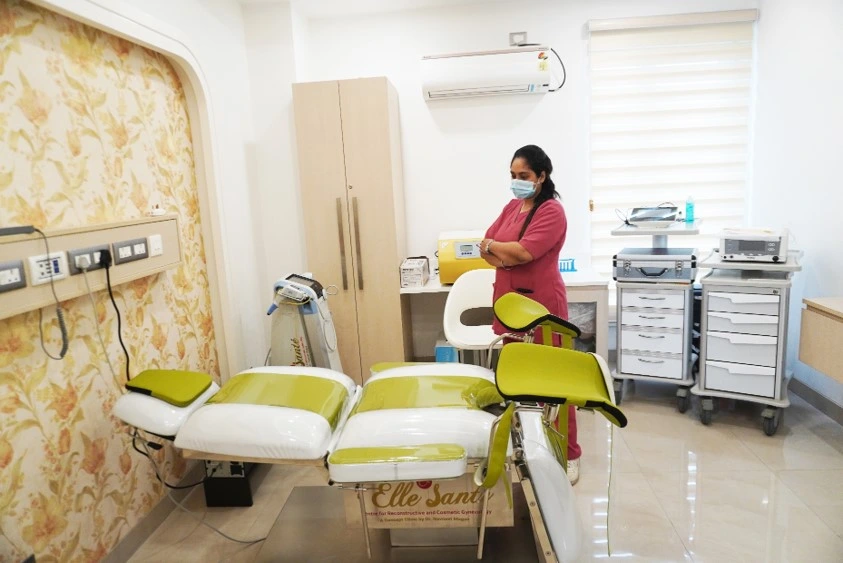
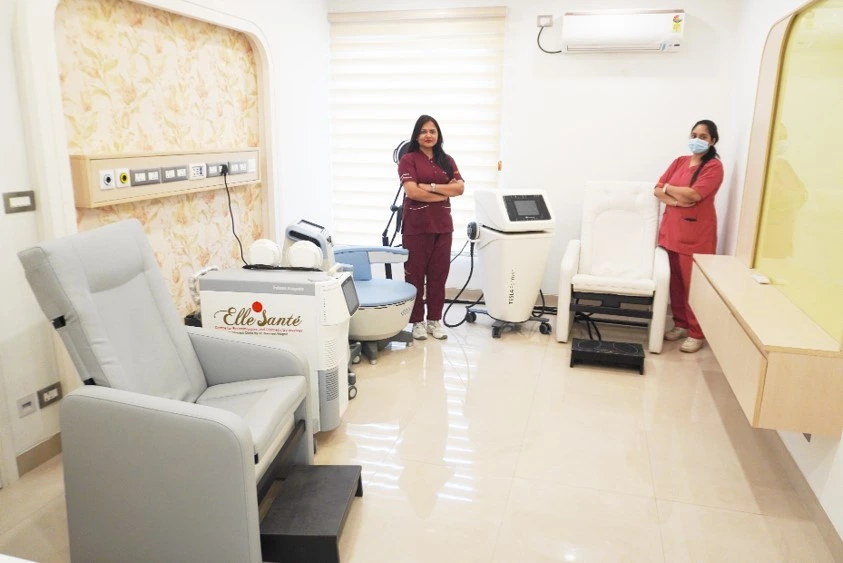
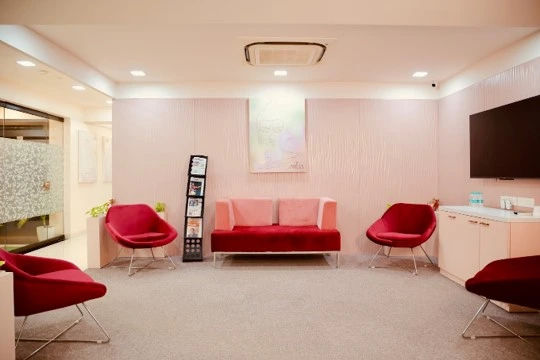
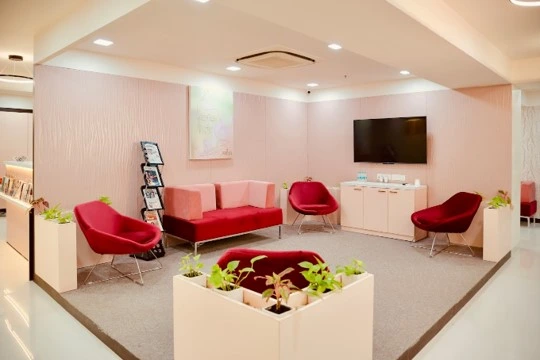


Elle Sante Gurgaon
NR – 38, Main, Nathupur Rd, DLF Phase 3, Sector 24, Gurugram, Haryana 122002
Elle Sante Mumbai
6th floor, S.M House, 11, Sahakar Rd, Vishnu Prasad Society, Navpada, Vile Parle East, Vile Parle, Mumbai, Maharashtra 400057
Elle Sante Hyderabad
C/o FMS Sculpt & Dental Hospital Door No. 8-2-293/82/A/725, Road No. 37, Hitech City Rd, nr Daspalla Hyderabad, CBI Colony, Jubilee Hills, Hyderabad, Telangana 500033
Elle Sante Visakhapatnam
Health city, Medcy Hospitals, Plot 9A, chinagadili, Arilova, Visakhapatnam, Andhra Pradesh 530040
Elle Sante Agra Pratappura Centre
Khandelwal Nursing Home, 3/27, Mahatma Gandhi Rd, khandelwal Colony, Pratap Pura, Rakabganj, Agra, Uttar Pradesh 282001
Elle Sante Rohtak
Elle Sante Nursing Home, C/o, Civil Rd, opposite Piller No. 22, HUDA Complex, Rohtak, Haryana 124001
Elle Sante Firozabad
Om Hospital and Research Centre, SN Rd, opposite PK Tiles, Devnagar, Nai Basti, Firozabad, Uttar Pradesh 283203
Elle Sante Agra
3rd Floor, Shanti Madhuban Plaza, 1/2, Delhi Gate Rd, Hariparwat, Professors Colony, Civil Lines, Agra, Uttar Pradesh 282002








